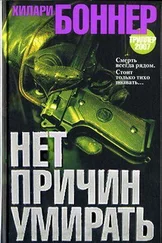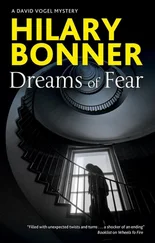Simple, straightforward and a big overreaction, some might think. But Carl was like that. I knew well enough the extent of his loyalty, the lengths to which he would go for someone he loved. He would naturally expect that kind of commitment the other way round and for it to last for ever. I knew that was what he expected from me, and it was what I wanted to give him.
Although Carl was so strong in so many ways there was also an insecure side to him, which I believed stemmed from all that had happened to him before our time together. I understood that all right. Few of us can ever truly escape from our own pasts. And how I wished that I could escape from mine.
But Carl had given me a new life, and six years I could look back on with joy. I loved him with all of my heart and mind, and I really would not have known what to do without him there to guide me. Among the sweetest of my memories was the moment when we arrived in St Ives together for the first time. It was a beautiful late-September night and he had driven straight to the harbour. We parked the van and walked to the waterside. The moon had been high and bright, and the sky full of stars. The tide was low and several of the boats moored there had bottomed out and lay crookedly on the sand basin, their masts creating a crazy pattern of angular shadows.
It was almost midnight and St Ives was already asleep. Momentarily the moon was covered by a passing cloud and the sky turned black as coal. I was used to the bustle of London where darkness never really falls and the silence overwhelmed me. Indeed, the sense of peace was such that it felt as if we might be the only two people awake in the whole world.
I breathed in the smell of the sea. You could taste the salt in the air. A slight breeze was blowing inland. It made the hairs on my arms and the back of my neck stand up and sent a shiver down my spine.
‘My Lady of the Harbour,’ Carl whispered in my ear.
He put his arm round me and I snuggled up to him, unsure of what was going to come next but happy just to be with him.
‘This is the start of our new life,’ he murmured. ‘Tomorrow we will find ourselves a new home.’
As ever, whatever Carl promised seemed to come true.
We slept in his old van, which he had driven all the way from London, wrapped a duvet round ourselves and huddled as close together as we could get on seats divided by a gear lever. We would have been more comfortable stretched out in the back, but the van was stuffed full of our various possessions – mostly things belonging to Carl, like all his painting gear and completed paintings. I had brought little from my previous life except a few clothes – but there was my red bicycle, Gran’s bike, of which I was so proud.
The next day we bought the local newspapers so that we could study the property pages and toured the estate agents.
Rose Cottage, on a hill at the back of the town just off the beginning of the main road out to Penzance, was the second place we saw. Whatever roses it might originally have taken its name from had long gone. It didn’t even have a garden. The front of the granite-built cottage, its highly suspect roof stained with lichen, veered steeply upwards directly from a narrow cobbled alleyway. The front door led straight into a small, dark living room. Another door, open on our arrival, led into a poky kitchen and through the glazed kitchen door at the rear we could see that there was just a tiny backyard, enhanced only by a washing line and a dustbin rather than the blooming display of roses we had allowed ourselves to hope for. This was not a two-up-two-down. This was a one-up-one-down, with a lean-to bathroom and kitchen tagged on downstairs. The window of the downstairs living room directly faced the living room of the cottage opposite, no more than five feet away. No wonder the rather grimy net curtains looked as if they remained perpetually drawn.
At first glance Rose Cottage, although quite picturesque in its way, did not appear to be a very attractive proposition at all. I had already discovered that this was fairly predictable. Landlords of the better St Ives properties are inclined to prefer to plug in to the lucrative summer market rather than settle for the much lower weekly rent of an all-year-round let.
Carl and I glumly took in the grubby two-seater sofa, an elderly gate-legged table and a collection of four odd dining chairs, about all the room would take, before allowing ourselves, without enthusiasm, to be led up the rickety staircase in one corner.
It was then that everything began to change. Rose Cottage’s only bedroom boasted two windows, a large picture window at the front, which just cleared the roof of the cottage opposite and below – such was the steep slope of the hill on which they were both built.
The view over rooftops took in the whole of St Ives bay. I felt my breath catch in my throat. It was late afternoon on a bright, sunny day. The cottage faced west and we could see the sun glowing orange and beginning to fall into the sea. The only outlook from the window at the back of the room, which I realised must face east, was the blank wall of the cottage above – but there was space enough in between to retain the sense of privacy and, I felt sure, to allow the morning sun to stream in. Also, the room seemed slightly larger than the one below. I couldn’t quite work out how but the estate agent explained that old St Ives had been built in such a higgledy-piggledy fashion that buildings often more or less slot into each other.
The town is not badly planned, it was just never planned at all. The reason for the tangled network of alleyways often leading to dead ends, occasional outcrops of rock, unexplained bulges in walls, and ancient cottages displaying impossible curves and angles, is simply that the early builders put a house anywhere they could find a location. Then the later builders filled in the gaps.
Maybe all this added to the magic, for Rose Cottage certainly cast some kind of a spell over Carl and me. I could feel him clutching my hand tightly. We did not speak. Instead, we allowed ourselves to be taken downstairs again, shown the kind of bathroom in which it would clearly be quite possible to sit on the toilet, wash your feet in the undersized bath and brush your teeth at the same time, then out through a tatty little lean-to kitchen into the yard. And there was the clincher.
Alongside the wall, which divided the tiny cottage from the property next door and to the right, somebody had built another lean-to, a curious makeshift construction made up of a brick base with steel panels above, framing a line of ill-fitting windows, its roof of corrugated iron punctuated by large glass skylights, which probably stood where there had once perhaps been flower beds. It was not very big – quite long, maybe fifteen or sixteen feet, but no more than six feet wide – and should in no way be confused with a modern double-glazed conservatory. Indeed you could almost see the gaps around some of the sadly deficient glazing through which the wind would surely whistle on chilly winter days. However, to both Carl and me the place practically screamed ‘ Studio ’. Its glass-panelled roof sloped directly towards the clear north light that artists so love and it was big enough, surely, for just one painter to work in. Particularly if he were organised and tidy, and Carl was both. Extremely so. I had seen that in London where he had worked in just a corner of a flat, which comprised only one big room. If he made a mess he cleared it up at once, his paints and brushes were kept in meticulous order in a large mahogany box, and his work was always scrupulously catalogued and neatly stored. I glanced at him. I could almost see him erecting his easel in his head.
We needed no discussion. Rose Cottage had sold itself to us. And the good news was that we could move in straight away. Indeed, when Carl offered to pay a month’s rent as deposit and three months’ in advance, the need for references no longer seemed to apply and Rose Cottage was ours. Carl had already told me that cash was not an immediate problem. He had brought with him from London a leather document case, in which he had habitually kept whatever money he had earned and managed to save, which had been concealed beneath the floorboards of his flat. He did not trust banks, he had explained to me.
Читать дальше












